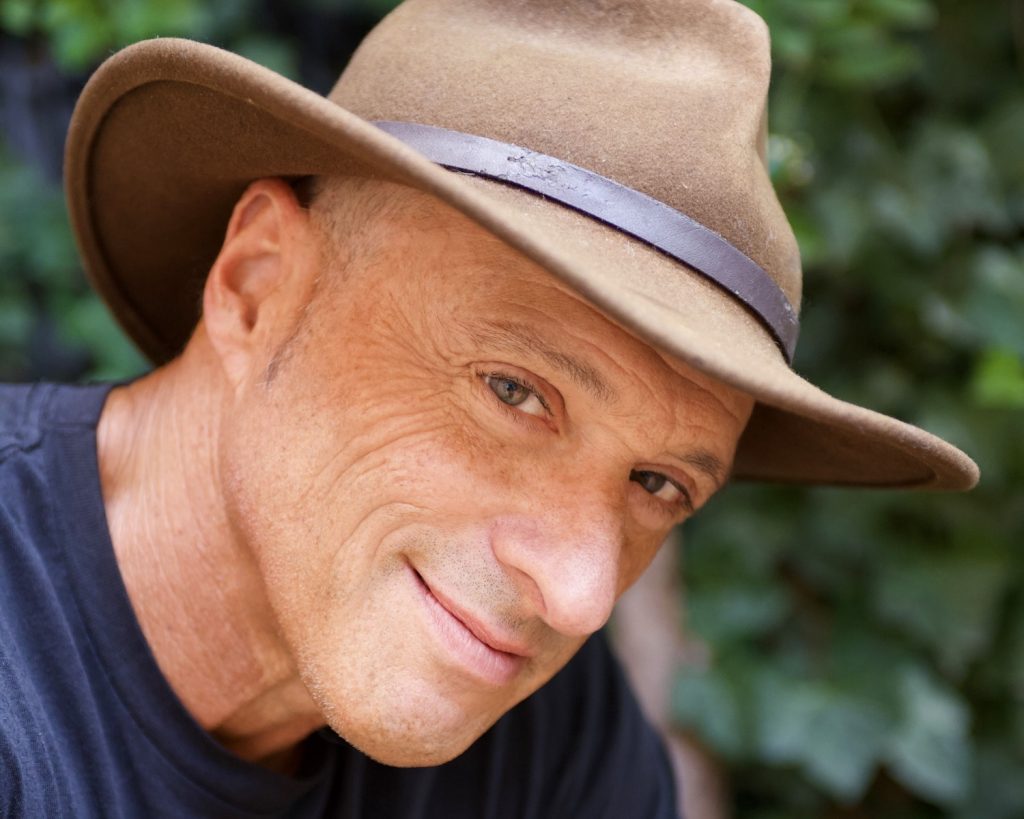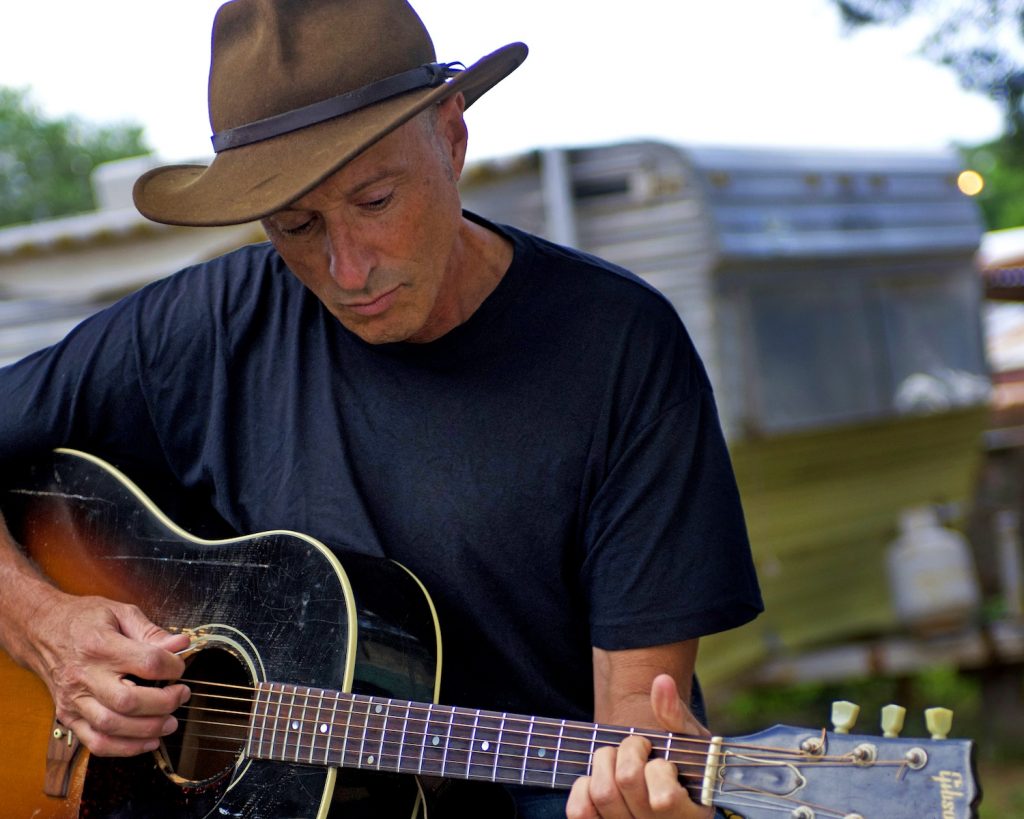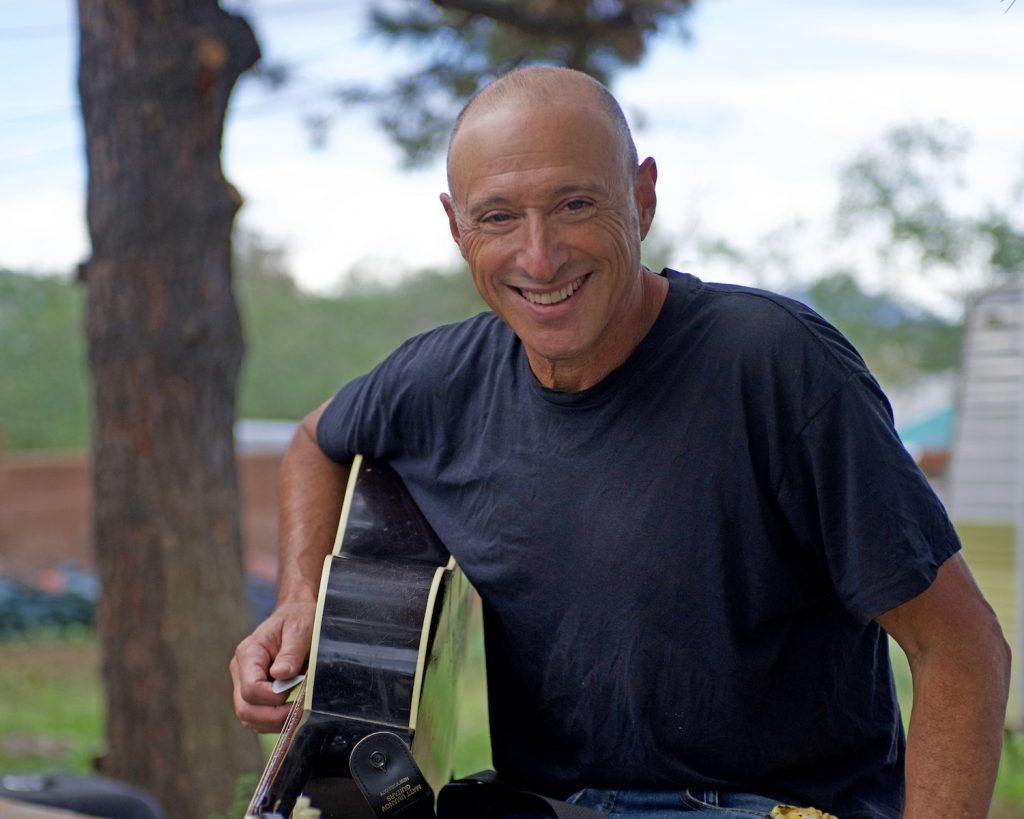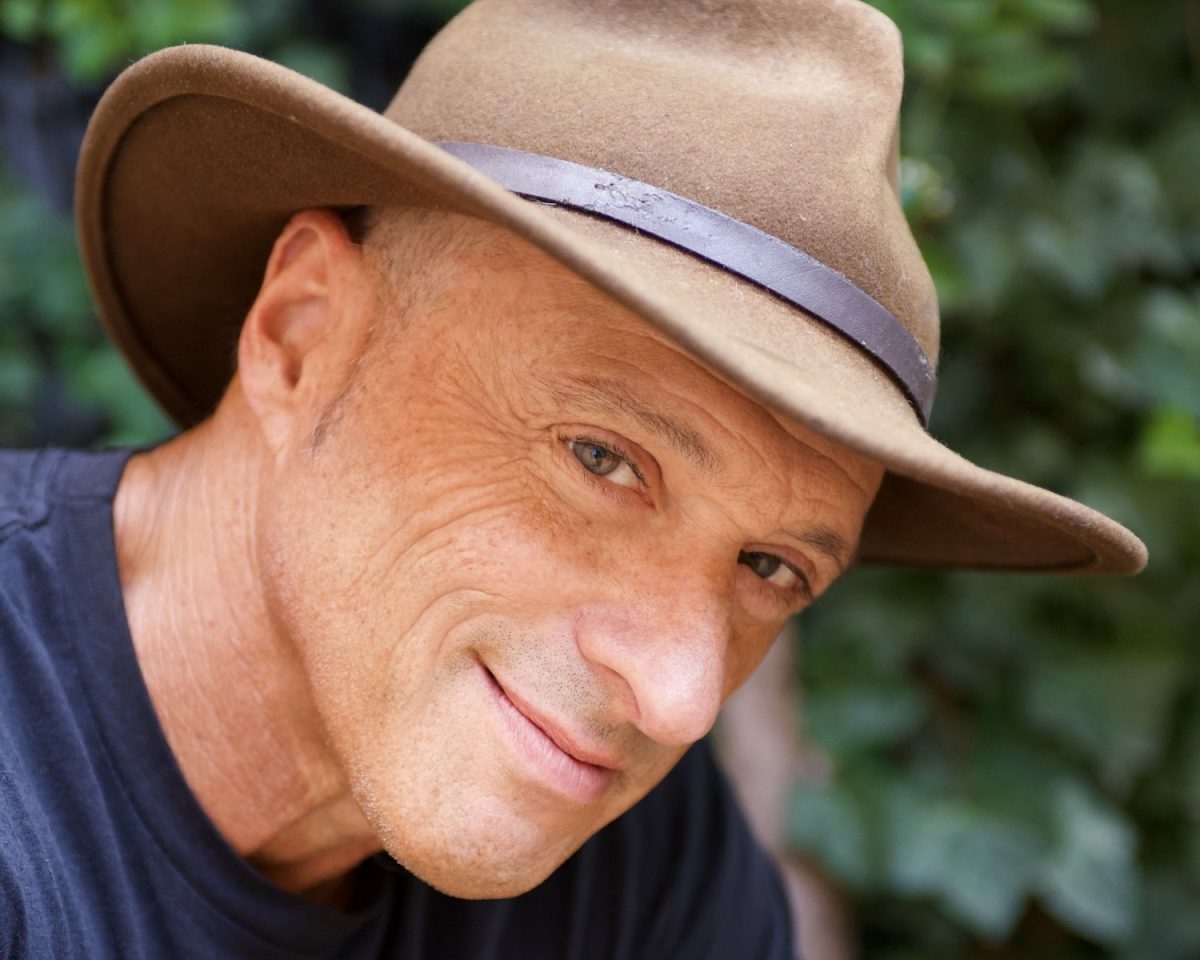
Asked about commercial expectations for 2001’s New American Language, his then-fourth LP—now remastered and released on vinyl (a first for his 30-record career)—folk/rock singer/songwriter Dan Bern remembers more about how he felt during its creation than notions of potential success.
“It was a real rollercoaster ride recording in Kansas and Colorado with a lot of different people and sandwiched between a lot of different tours, countries and continents,” says Bern. “It’s all in there somehow. It was also millennium fever, kind of apocalyptic and hopeful all mixed together. The record came out sprawling and coherent at the same time.”
Producer and bandmate Wil Masisak—who Bern credits for harnessing his material and, it must be noted, manned the keyboards in a post-“Play That Funky Music” incarnation of Wild Cherry—definitely had certain intentions for New American Language, but they weren’t explicitly related to commerce.
“It seemed like Bernie needed a career-defining collection of songs and a polished record to solidify his legacy in American music,” says Masisak. “We devoted ourselves to making something special aligned with those goals—we spent nearly two years making and remaking this record. I was so proud of seeing it to the finish line and feeling like it was not only going to be good for Bernie to be known as a great songwriter, but that it was important for people to hear this somehow, that it could impact their lives. I still think it’s soul-changing and saved a lot of adrift passengers on the planet coming out when it did.”
That last bit references the record being released shortly after September 11. Given the nation’s collective psyche, New American Language —which features Bern’s best-known song (and, true story, one of Roger Daltrey’s favorites), “God Said No”—was probably overlooked as people grieved; though, as Masisak alluded to, perhaps it helped others. A small consideration in the grand scheme, Bern and crew certainly experienced challenges touring in the tragedy’s wake.
“The crowds went from, say, 200-300 in a club the previous time we played there down to like 30 people,” says Masisak. “Everyone seemed afraid to go out, afraid to have a good time, afraid to laugh. Those who came seemed to need it as much as we did.”
“My recollection is mainly that it was a great thing to be out there and have people gathered in one place for music and song,” says Bern.
A memorable moment of release took place in October of that year, when Bern and band played the first post-September 11 club concert in New York City, with many first responders, invited to attend for free, in the crowd. Masisak recalls they understandably seemed a little shell-shocked until Bern called an inspired audible.
“In the middle of the show, Bernie sent most of the band off and played an elegy that consisted of a recounting of the things he’d seen in person that day—he was riding his bike on the Brooklyn Bridge when the first tower was hit,” Masisak says. “The first responders were crying. I vividly remember a huge firefighter standing just in front of me who was absolutely bawling.”
“It all seemed very healing, for us and the audience,” says Bern. “We were all grateful to be doing it.”


Fittingly, given its genesis, resurrecting New American Language required some divine intervention. When label Grand Phony expressed an interest in a vinyl reissue, Masisak figured he’d simply track down the masters and get to work—until a call to original engineer David Glasser revealed that while backups existed, their whereabouts were unknown.
Glasser located the tapes a few months later, but something called an Exabyte drive was required to read them. These machines are ancient by today’s technological standards, and while Glasser owns three of them, they were inoperable. Masisak’s sleuthing fortuitously turned up a functioning one—less than a mile from Glasser’s Boulder, Colo., studio.
“David, of course, knew the guy with the machine, which worked and restored 90 percent of the original mastering from 20-plus years ago,” says Masisak. “Small world full of miracles.”
“Luckily, no one was depending on me to keep track of tapes from 20 years ago,” says Bern. “I may or may not have once thrown a box of three years of studio recording masters in a dumpster.”
Bern, who has a new record, Starting Over (also on Grand Phony), due in March, is on the road now with the band for a tour promoting New American Language. The shows help serve as validation for what he and his cohorts achieved those many years ago.
“The best part of all this—aside from just the satisfaction in seeing this record and Bernie get more of the attention they deserved back in 2001—is hearing from so many people who’ve reached out to say how much this record means to them,” says Masisak. “I once calculated that I’d made less than $1 an hour working on New American Language, so obviously we didn’t do this to get rich. Knowing what it means to even a few people, let alone more than we’ll ever know, is incredibly rewarding.”
“Going up to Colorado and getting back in a room with all these guys and playing the songs, hanging out and swapping stories to get ready to do the shows, that made it all worthwhile for me,” says Bern. “Everything else is gravy.”
—Matt Hickey






